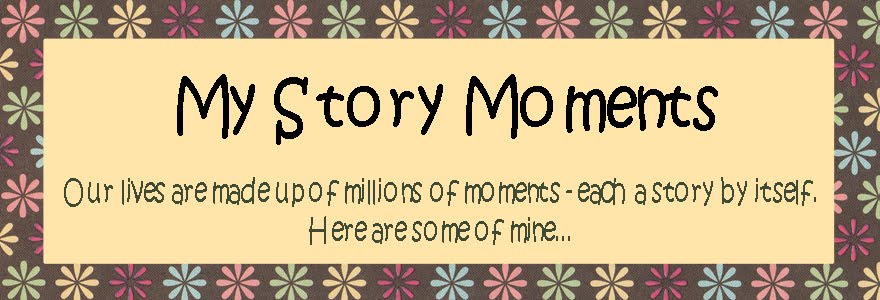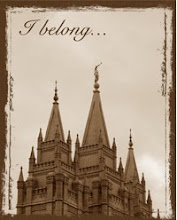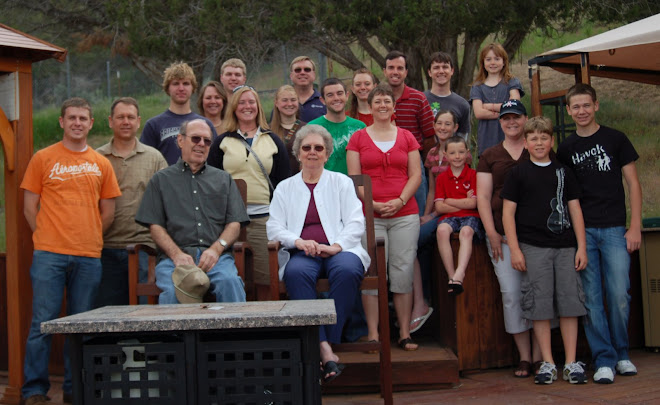There is a long day ahead of us.
The rest, from last nights sleep, for Christ, will be his last. Today is the last day of peace until the atonement is completed. The conspiracies are in place.
Today is spent in preparation for the Passover meal. This meal will occur after the sun sets. When 3 stars appear in the sky, the next day begins in the Jewish way of reckoning time. So as the sun sets on their Thursday (and our Thursday), Friday (Passover) begins when 3 stars are in the sky.
Peter and John are sent ahead to Jerusalem today, to prepare the meeting place of Christ and the 12 apostles. They need an appropriate place to partake of the Passover. They are to meet a man who will show them to a room that is to be prepared. This has been called "the upper room". It is presumed to be the upstairs room of the home of the teenage boy Mark John. The same Mark John who later wrote the Book of Mark. He was young, and it is known that his family's home was often used as a gathering place. The preparation is done discreetly, possibly so that Judas does not know where they will be gathering that night, so that he doesn't pre-warn Caiaphas, the Sanhedrin and the other leaders of the day. This will give them some time to partake of the Passover meal, and the final teaching moments that Christ will have with the 12.
It is estimated that 1,000,000 to 2,000,000 people are in Jerusalem at this time. (This estimate is based on writings that indicate that 100,000 to 200,000 lambs were slaughtered on this occasion. Figuring 10 people per lamb is where the number comes from.)
The Passover practice is long and complex. They will sing, eat, and pray in the traditional Passover. Sing and repeat the Hallel's we know as Psalm 113 to 116. In addition to what traditional elements they may have practiced that night, Christ also added several elements. Examples include, eating of bread as a sacramental emblem.
Reading the Book of John, chapters 13 to 18 shed great light on today's story. John, who was in attendance, recorded many items from that night that the other writers of the Gospels did not included. Matthew, Mark and Luke wrote about Christ's life, but they did not include everything. Their writings are similar, and are considered "The Synoptic Gospels" because they tell a similar, singular story. John later read their accounts, and then wrote his account. His gospel has many unique stories, and he wrote extensively about these final hours.
In summary, John wrote of: loving one another, warnings, and The Comforter (Holy Ghost or Holy Spirit). All of these well known stories, and several others, all occurred in a matter of hours during Christ's last hours on earth. 5 full chapters of the Gospel of John, cover only a few hours of Christ's life. Christ's final words.
Wouldn't the words freely spoken in your final hours of life on earth, when you knew that it was the end, be some of the most important, useful and sincere?
What would you say in the final hours? What would you want to hear from some else as they were knowingly going to die?
Is it I?
It's time for the final supper. We must be inside as the three stars appear in the evening sky, thereby beginning a new day ("Friday"). It's time for Passover.
The Upper Room Setting: They sit and lounge on the floor around a circular table. Lying on pillows or occasionally each other. Christ, Peter, John and Judas are near each other. This apparently because of Peter's position as leader, and John and Judas's seemingly private communication with Jesus during the meal.
At some point, Christ tells them all that one of you will betray me. He has come to the point in time, when Jesus of Nazareth the Carpenter's Son, knows all things. He knows that Judas has conspired to betray him to the evil men of the day.
One of you will betray me.
As most honorable and thoughtful men will do, they first consider if they themselves are the source of the offense. They generally and individually ask, "Is it I?" . Will I be the one who offends this great man that I've been following around for several years? "Lord, is it I?"
John seems to privately ask Christ who it is. He then says privately to John, that the one who will take sop is the one. Christ then offers sop to Judas.
As Christ is either presenting some of food or possibly sacramental emblems to the 12 and to Judas, Judas feigns ignorance and asks, "Is it I?". "Thou sayest"......YES!
When you read this phrase at this time and later during one of the trials before the Sanhedrin, Christ answers several questions with "Thou sayest" or some similar version. In the wording of the day, this phrase means an affirmative. It means that what you are saying is correct. It means yes.
Yes, you are the betrayer. Then Christ says, "What thou doest, doest quickly". Judas then leaves. Apparently John and possibly Peter are the only ones realizing that Judas is a betrayer. Later they confirm that Judas was not only a thief (he was the 12's treasurer and was known to steal some from their money bag), but also a murderer.
They now have some time alone to continue with teaching, now that a troublesome one with a dark and contemptuous spirit has left the room. Judas likely heads to his co-conspirators, to inform them where they can find the victim of their plans.
The Discourse on Love
Setting: The upper room.
Thursday Evening (Friday): Sometime through the meal, Christ begins to prepare and wash everyone's feet. Peter disagrees, because he thinks that is beneath Christ's station. Christ tells Peter that he doesn't understand how important it is, so let him do it. Peter then wants his whole body cleaned. Christ says that if his soul is clean, then Christ only needs to wash their feet. He says that all of the 12 are clean, except 1 (Judas). If Judas hasn't yet departed, then his feet were also cleaned. The entire message of the act, is that no one is above service to others. Even the Messiah of the world, who is hours away from a night of brutality and a violent death, takes it upon himself to wash the feet of 11 or 12 other men. He has washed their feet (i.e. served them), they should now wash other peoples feet (i.e. serve them).
Judas has left at some point here.
Now Christ begins a discourse on love towards other people. The is one of the greatest messages that is recorded from that night's activities. Love other people, to the same extent that he has loved us.
Would you being serving others hours before your impending death? Hours before an unjust execution that is waiting for you? When is your impending death anyway? 30 years from now? Tomorrow?
Comfortless?
Setting: upper room.
Thursday Evening: The Messiah is going to die and he's telling them that he is. They may not fully grasp what he's telling them, after all, they've seem him do many incredible things. Water to wine, walking on water, raising the dead, giving sight to the blind, healing leprosy, etc. How is it possible for him to die? That they accept him as the Messiah, is a forgone conclusion. However, they may not have fully grasped the concept of what form of victory the Messiah was to bring, or the atonement and certainly not the near-future resurrection. They saw many super-human feats, but they were still mortals with limited abilities and knowledge......just like us.
Just like us, they had to figure things out. And just like us, they are about to live on the earth without the physical manifestation of God embodied in the form of the Carpenter's Son.
So here it is. He's telling them that he's leaving and they can't come with him. He tells them not to fear, because he's preparing a room in a mansion for them. And the great principle being taught----and it applies to us----is that he will not leave them comfortless. His words are, "I will not leave you Comfortless" . Paraphrasing, he says that he will pray to the Father and he will send another Comforter.
The Christian world will disagree on different particulars of the Holy Trinity, but I think it is generally acknowledged that this comforter is the Holy Spirit or Holy Ghost that came to the worthy masses on the Day of Pentecost. That member/version of the Godhead is available to all of us, to bring us comfort during times of difficulty. These 11 apostles, and all of the disciples of the day, had a great reason to suffer and fear for their lives once Christ left.
If a person asks God for help, he will not leave you comfortless...even though we don't see Christ walking our streets.
The Arrest
Setting: The Garden of Gethsemane, on the Mount of Olives, overlooking the temple.
Thursday Evening: With the Passover meal, prayers and ordinances completed, the Messiah and the remaining 11 head to the garden on the Mt of Olives. The general route would have had him walk past or through the temple grounds. Then down through the Kidron Valley, which is adjacent to the eastern wall of the temple. The valley was much deeper then than it appears today. Most photos from the sky, of the temple mount today are taken from the south. The Kidron valley and it's stream is to the right, with the Mount of Olives rising up the other side.
Once at the garden gate, he tells 8 of the Apostles to wait at the bottom, while Peter, James and John walk further up the hill and into the garden with him. He then asks these 3 leading Apostles to wait nearby, as he alone goes a bit further, about a stones throw. It is here, in the Garden of Gethsemane, that the great suffering that is associated with the Atonement occurred. He began to pray to the Father, asking if it is possible, to remove the bitter cup that he is about to drink. After all of the courage, emotional strength, moral fortitude that exhibited in his life of perfection, at this crucial moment, even this Son of God, asked that if it is possible, please don't let this happen. Remove the bitter cup, unless it is God's will that he drink it. But, he knows, and the Father allows, that it must happen.
The record then says that an angel appeared to him to strengthen him. Some have conjectured that it might have been Michael. In any case, the suffering for the pains, sufferings, sickness and sins of the people begins. He sweat great drops of blood from his body from the agony of it. He lies prostrate on the ground from the suffering. Blood which is and represents life, is now shed to give eternal life to the masses of humanity that so desire it. After an untold amount of passing time----hours?----he rises up, and finds that the 3 leading Apostles have fallen asleep. Expressing some disappointment, he asks why they couldn't have stayed awake while he suffered.
He proceeds to the bottom of the hill and finds the others. Then approaches Judas with a crowd of men. It's likely that Judas leads the men first, to the upper room, when he had been excused by Christ. Finding that Jesus was not there, he then led the mob to the garden where Christ often went. Seeing Christ, he completes his treachery by giving the prearranged sign of greeting the Messiah with "Master" and a kiss. Christ, knowing what's happening, replies, "Judas, betrayest thou the Son of man with a kiss?" Imagine the words! Paraphrased as, "You betray the Son of Man of Holiness (i.e. God) with a kiss!"
Upon the signal of the greeting kiss being given, the mob moves forward to arrest him. "Arrest", because they are led by the legal governing body of the Jewish nation, the Sanhedrin. As they then move forward, Peter pulls a sword and swings at one of the men in the mob. Cuts his ear off. Then, through the shock of the reaction amongst the crowd, Christ reproves Peter by saying, "Peter, don't you know I can call down twelve legions of angels?" Meaning, I don't need your sword or anyone elses to defend me. Besides Christ's own power resident within him, he could call down twelve legions (twelve thousand) angels to defend him. Christ is going to go willingly to the slaughter, as millions of lambs have done for thousands of years of Jewish ritualistic sacrifice.
Then above all of this, Christ heals the ear of Malchus, the man who approached to take him. Even at this hour of violence, he takes the time to heal the severed ear of an enemy.
We will end at this point. Realize, that while you are asleep tonight, that Christ will be spending the evening being beaten, whipped, spit upon, thorns driven into his head, accused, harassed, questioned, abused. He does not sleep nor rest until his death tomorrow.
Peter’s Denial
One of the great, thought provoking aspects of the story of Peter's denial, is that we even know anything about it. You'll only hear this from me (Phil), as I've never heard this spoken of elsewhere. Why do we know this story at all? Peter was not with any other disciple when it happened. Yet it's recorded in the gospels. I say, it's because it was such a searing and scaring learning experience for the man, that Peter shared the story with those who recorded. In any case.......
Thursday Evening: Christ has been arrested an hauled to a building. John and Peter follow. John has influence, and may have been at one time a righteous member of the Sanhedrin or other organization. Because of this influence, he is able to get himself and Peter into the court yard.
Earlier that night, while in the upper room, when Peter was so zealous about having Christ wash his whole body and not just his feet, Christ told him that he would deny him 3 times, before the cock crows the next day. Peter was adamant that he would not and that he would die for Christ, as did the others say it.
At some point, Peter comes near a fire burning in a courtyard. As he warms himself, a maid accuses him of being with Christ. He denies that he knows Christ. A bit later, another woman also recognizes him, and openly says that he was with Christ. At this point, he swears an oath to the people, that he is not with Christ. About an hour later another openly accuses him by saying "Thy speech betrayeth thee". Meaning that Peter is a Galilean as is Christ, and they can tell by his accent. His accent is giving him away. At this point he angrily denies that he knows Christ. And "immediately" -----immediately----the cock crew. At this point, the most graphic and painful vision you can imagine occurs. Luke records that the "Lord turned and looked upon Peter". Somehow, in the middle of his accusers and the abuse, Christ is able to look through an opening in the crowd, or through a window into the courtyard---somehow he is able to make eye contact with Peter. Peter then recalls the Lords words and prophecy that Peter would deny him three times......."and Peter went out and wept bitterly".
Image the scene. Would you have been any different? Does you speech betrayeth you as a Christian? Does your speech allow you to be justly accused of knowing Christ?
The eye-to-eye contact with anyone we've denied knowing in their hour of need would be a form of hell. Put yourself in his shoes. What would you have done?






















No comments:
Post a Comment